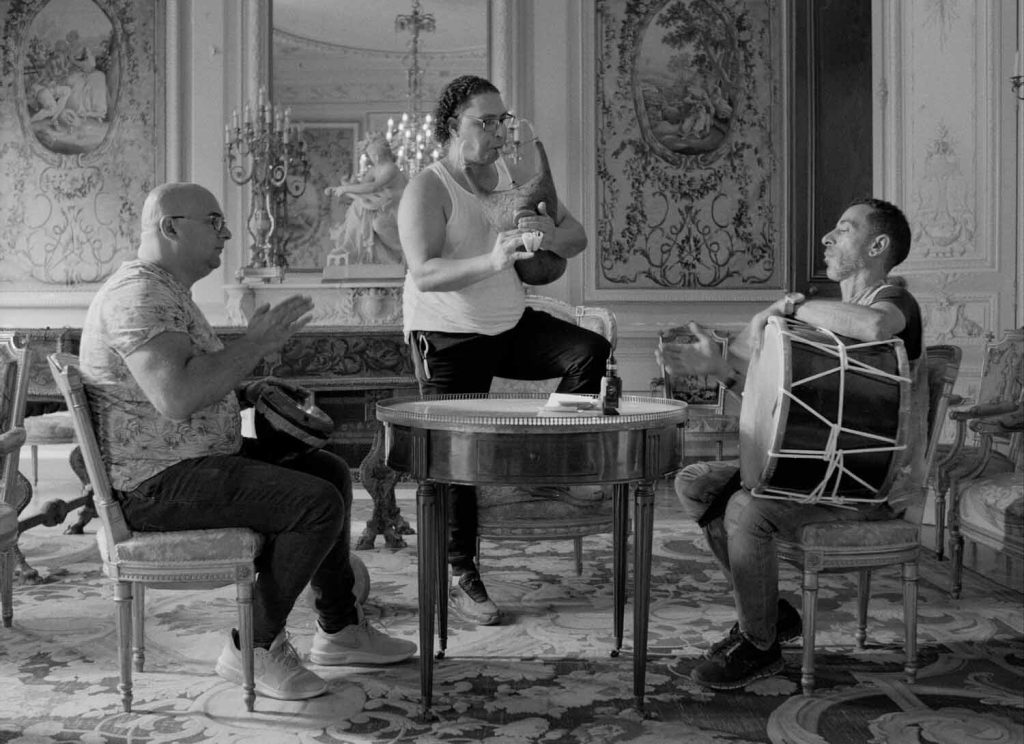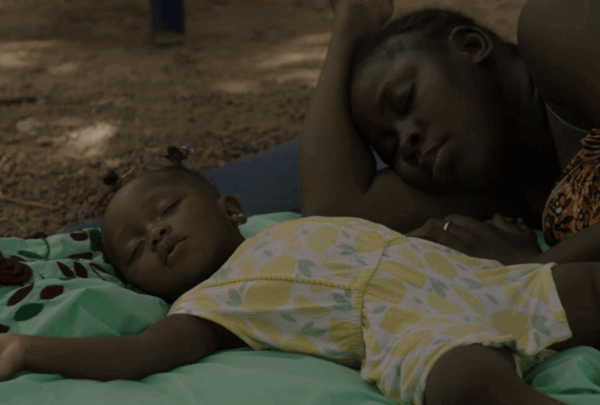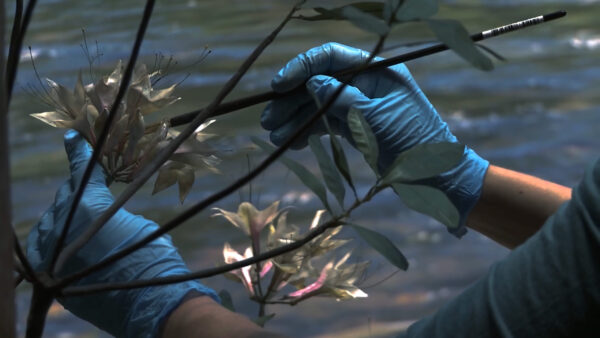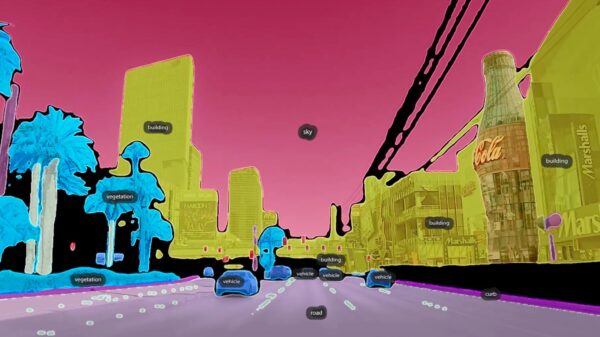Unframed, Reframed
One Hundred Steps
Instead of offering anything as a straight factual counterpoint, the musical performances in One Hundred Steps themselves demand reconsideration.

For the past eight years, filmmaking duo Bárbara Wagner and Benjamin de Burca have been developing a hybrid practice that infuses a documentary-fiction blend with musical performance. With an emphasis on socio-political, historical and geographical layers of different musical genres, they collaborate with the artists in their works to excavate hidden and marginalised histories, from Brazil to Canada to Germany. Their latest film One Hundred Steps, which was shot during the pandemic and premiered at Berlinale this year, was informed by Irish filmmaker and writer Bob Quinn (º1930), particularly his documentary quartet and book Atlantean. Quinn’s diversions from the dominant Eurocentric views on Irish heritage and history exposed the influence of North African culture on the Irish, a result of the trade travel across the Atlantic seaways, providing an anti-colonial counterpoint to mainstream narratives.
As Quinn’s work involved tracing connections between traditional Irish song and dance (sean-nós) and Arabic equivalents, his relevance to Wagner and de Burca’s practice is only natural. One Hundred Steps begins looking out of a window in Bantry House in the southwest of Ireland, an aristocratic 18th-century stately home. Wagner and de Burca’s musical performers start off as visitors in the house, which today is a museum exhibiting the abundance of art and artefacts collected by the Earls of Bantry on European travels. Shot in black and white, the film from the outset emphasises the status quo preserved in these privileged spaces that, as the artists say, “stood for empirical knowledge”, determined by an elite. The camera slowly and carefully moves through the house’s exhibition rooms, much like we would as visitors in these spaces, yet, in this case, the centrepieces it rests on are the subtly provocative performances by traditional Irish musicians, sean-nós singers, and dancers, who “are never represented in the house, but they perform in it”. This first chapter closes with a young singer walking up the titular one hundred steps found in the estate’s gardens and looking out over the house and grounds, positioning herself above this symbol of the landlord class and excessive private wealth.
The second part of One Hundred Steps moves to Marseille and mirrors the structure of the first half, this time taking place in Musée Grobet-Labadié, a bourgeois townhouse built in the 19th century for a rich local politician. This house, too, exhibits the wealth of art collected by its former owners over years of continental travels. Here, Wagner and de Burca provide a stage for North African musicians living in Marseille, a city that is home to over 150,000 people from the Maghreb region—immigration that is, of course, linked to France’s colonial past. Presenting these lavish rooms as if within them, time is frozen in favour of an old elitism, the film points towards a need for more meaningful engagement. The performers, therefore, provide dynamism and are able to claim space by occupying it with their own cultural heritage and presence in the city. In one scene, three men play a game of cards, scored by urban street sounds, blending what is a casual daily outdoor setting for Marseille’s real inhabitants with the pristine delicacy of the sitting room.
In both parts, those who would never have had access to these spaces in the past are given room for expression of rich culture and identity, providing musical evocations of marginalised histories and cultures as opposed to the pretence of truths on offer in collections tied to colonial history. The performers hold these spaces in these moments—in the words of Wagner and de Burca, “a form of negotiating with that history”—and through doing so, infuse it with a more complex and layered past. In contrast, when we hear the museum tour guides speak of the collection portraits on display, the camera refuses to make those portraits visible.
Wagner and de Burca’s approach of centering these musical traditions and connections to address the gaps in dominant narratives is effective because, instead of offering anything as a straight factual counterpoint, the performances themselves demand reconsideration. One Hundred Steps might feel weighty, the density of its historical, cultural, and socio-political framework palpable and seemingly hard to penetrate, yet this plays in favour of its thesis. Like the artists’ other works, it urges audiences to be responsive and attentive to obscured yet significant stories in a manner that prioritises interpretation and expression over didacticism. We receive these performances without elucidation, much like we might receive the collections in these houses, but they work as interventions, as invitations to be less passive about our engagement with presentations of art and history. The film’s geographical span of two countries that each have links to the North African region also firmly places it in the context of modern Europe, and the often underacknowledged contributions of marginalised communities on our societies.
Bob Quinn himself appears in the Bantry House chapter, standing over a piano before he picks up his camera to film the musicians behind him. Wagner and de Burca here insert the analogue colour footage shot by Quinn there and then, a vibrant segment that works as celebration, interrogation, and homage to the body of work that provided a starting point for this film, but also a consolidation of the collaborative intent at the heart of their practice.





There are no comments yet, be the first!